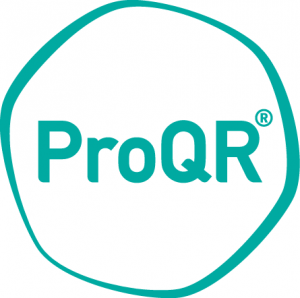Clinical Trial Authorized in the U.S. for Emerging LCA 10 Therapy
Research News
ProQR, a biotechnology company in the Netherlands, has received authorization from the U.S. Food and Drug Administration to start a Phase I/II clinical trial for its therapy known as QR-110
 ProQR, a biotechnology company in the Netherlands, has received authorization from the U.S. Food and Drug Administration to start a Phase I/II clinical trial for its therapy known as QR-110, which is being developed for Leber congenital amaurosis type 10 (LCA 10). The genetic retinal condition causes severe vision loss in children.
ProQR, a biotechnology company in the Netherlands, has received authorization from the U.S. Food and Drug Administration to start a Phase I/II clinical trial for its therapy known as QR-110, which is being developed for Leber congenital amaurosis type 10 (LCA 10). The genetic retinal condition causes severe vision loss in children.
QR-110 targets the specific mutation p.Cys998X in the CEP290 gene, also known as c.2991+1655A>G mutation. It is estimated that it affects about 2,000 people in the Western world.
QR-110 was a featured topic at the annual meeting of the Association for Research in Vision and Ophthalmology (ARVO) in Baltimore, May 7-11. About 12,000 eye researchers and industry professionals attended the event.
Known as an antisense oligonucleotide (AON), QR-110 is a drug that works like "genetic tape" to repair the mutation. Unlike gene replacement therapies in which copies of whole genes are delivered to replace defective copies, AONs correct the mutation in the patient's messenger RNA, which conveys genetic information for protein production.
AONs can be advantageous when large retinal-disease genes — such as CEP290 or USH2A — exceed the capacity of viral gene-replacement delivery systems.
"This is an exciting, landmark advancement for treating inherited retinal diseases," says Stephen Rose, PhD, chief research officer, Foundation Fighting Blindness. "AONs are an attractive option when the defective genes are too big for gene replacement, or there's a specific mutation affecting people."
The clinical trial will take place at the University of Iowa, the University of Pennsylvania, and in Europe. The study will include six participants between the ages of 6 and 17, and six who are 18 or older, all with LCA 10 due to the p.Cys998X mutation.
During the study, participants will receive four intravitreal injections of QR-110 into one eye — one injection every three months for one year. ProQR is also developing an AON therapy for a common mutation in the gene USH2A and has an ongoing clinical trial for cystic fibrosis.
For more information on the clinical study please visit ClinicalTrials.gov.




